Essential Moving Home Tips: Complete UK Guide for 2025
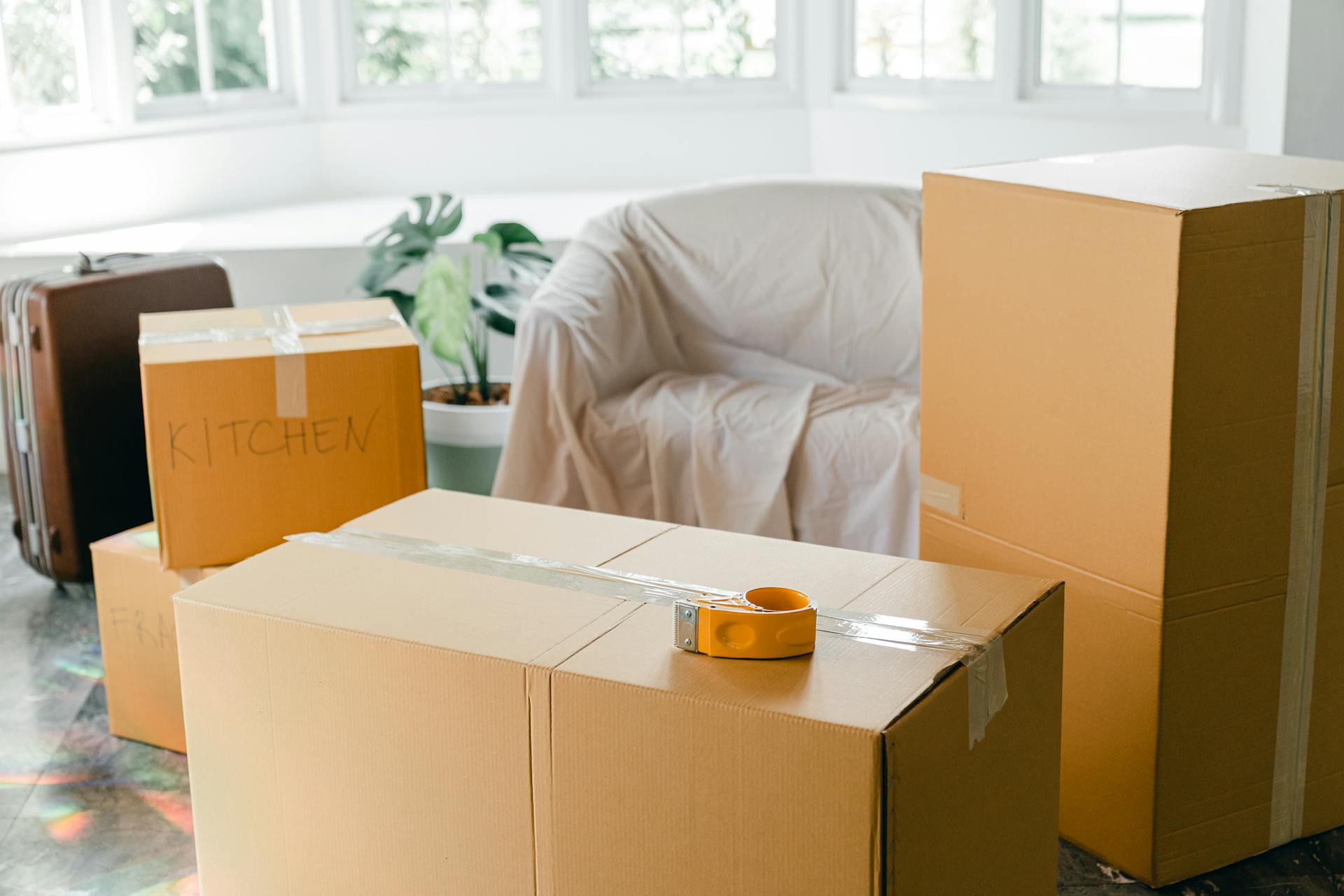
The easiest way to book quality trades
Moving home represents one of life's most significant undertakings, combining practical challenges with emotional transitions. Whether you're a first-time mover or experienced relocator, careful planning transforms a potentially chaotic process into a manageable, organized experience. Understanding what needs doing, when to do it, and how to handle each stage prevents costly mistakes and reduces stress during your house move.
This comprehensive guide provides essential moving home tips covering everything from initial planning through settling into your new property. You'll discover practical timelines, detailed checklists, packing strategies, utility management, and advice for moving with families and pets. These tips help UK homeowners and renters navigate the complete moving process with confidence.
Moving Home Planning: Creating Your Timeline
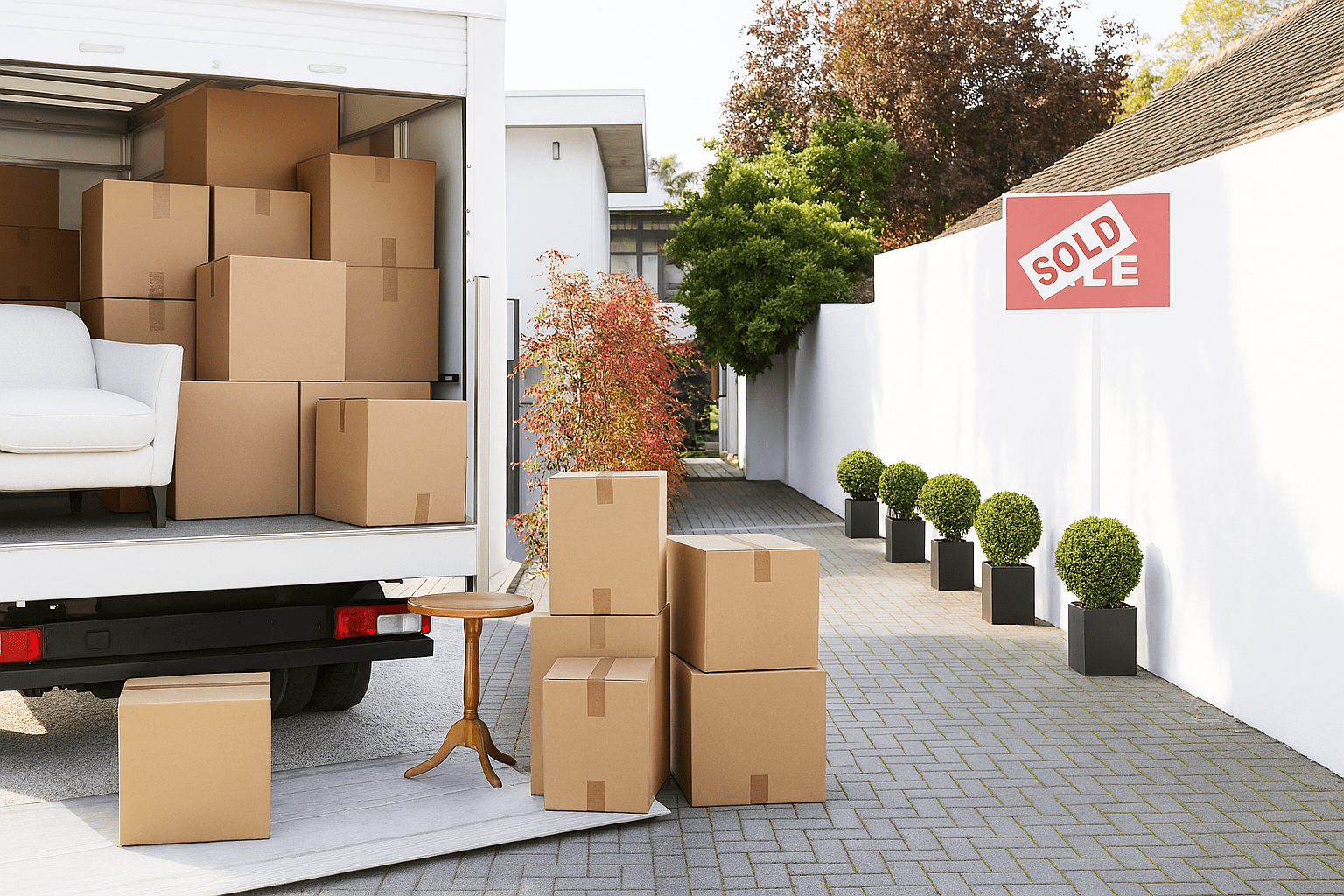
Successful moves start months before moving day through systematic planning and advance preparation. Understanding what needs doing when prevents last-minute panics and ensures nothing important gets overlooked.
8 Weeks Before Moving: Research and Preparation
Eight weeks before your target moving date, begin researching removal companies if you're hiring professional movers. Obtain quotes from at least three removal companies, comparing pricing, services offered, insurance coverage, and customer reviews. Professional movers handle heavy lifting and transportation, though costs typically range from £1,000-£3,000 depending on distance and volume.
Start the decluttering process at this stage, deciding what you genuinely want to move versus what to sell, donate, or dispose of. Reducing the volume of possessions cuts both moving costs and packing time significantly. Establish a realistic target of reducing possessions by 20-30%, particularly focusing on items you haven't used in over a year.
Create a moving home checklist covering all tasks requiring attention before, during, and after your move. Include notification requirements, utility arrangements, address changes, and specific packing deadlines. A comprehensive checklist prevents important tasks from being forgotten in the moving chaos.
6 Weeks Before Moving: Notifying Relevant Parties
Begin notifying organizations of your address change six weeks before moving. Create a list including your employer, bank, building society, insurance providers, subscription services, and any professional memberships. Many organizations allow online address updates, though some require postal notices or phone calls.
Notify Royal Mail of your address change using their redirection service, which forwards mail to your new address for typically 12 months. This service costs around £37.50 and provides crucial protection against missing important correspondence during the moving period.
Contact your utilities providers—electricity, gas, water, and internet—confirming disconnection dates at your current property and connection dates at your new home. Most providers require at least 2-3 weeks' notice. Provide final meter readings to ensure accurate final billing.
4 Weeks Before Moving: Serious Preparation Begins
Four weeks before moving, book your removal company if using professional movers. Confirm dates, arrange payment terms, and clarify what's included in their service (packing materials, storage, insurance, etc.). Receive written quotations and confirmation of your booking date and time.
Deep clean your current property during this period, disposing of items that won't be moving (old paint tins, broken furniture, etc.). Proper disposal follows local council guidance—check your council's website for waste disposal options and recycling facilities.
Begin collecting moving boxes and packing materials. Many supermarkets give away free boxes, though buying sturdy boxes ensures better protection for belongings. Estimate needing 50-60 boxes for an average three-bedroom house. Start packing non-essential items like seasonal clothing, books, and decorative items, leaving daily essentials for final packing.
2 Weeks Before Moving: Intensive Preparation
Two weeks before moving, arrange meter readings with your energy providers. Schedule final inspections with your current landlord if renting. Confirm your removal company's final booking details including dates, times, and contact information for moving day.
Pack approximately 80% of your possessions during this two-week period, leaving only daily necessities unpacked. Label all boxes clearly with contents and destination room, making unpacking infinitely easier. Use a color-coding system or numbering system to track boxes systematically.
Arrange childcare and pet care for moving day if needed. Young children and pets stress easily during the moving chaos; arranging for them to be in familiar, safe environments on moving day reduces stress for everyone involved.
1 Week Before Moving: Final Tasks
One week before moving, confirm all address changes have been processed by major organizations. Verify that electricity, gas, water, and internet disconnection/connection arrangements are confirmed. Cancel unnecessary utilities like landline phones if transferring to mobile-only communication.
Do final meter readings of all utilities at your current home. Take photographs of empty rooms for your tenancy deposit return if renting. Complete final packing of remaining items except immediate essentials like toothbrushes, phone chargers, and a change of clothes.
Prepare an "essentials box" containing items you'll need immediately upon arriving at your new home: toiletries, medications, phone chargers, important documents, basic tools, cleaning supplies, and a kettle or coffee maker. This box should travel with you rather than with removal company belongings.
Need a moving services professional?
Get instant quotes from 3-5 vetted local tradespeople. Compare prices, reviews, and availability—all in one place.
Managing Utilities and Services
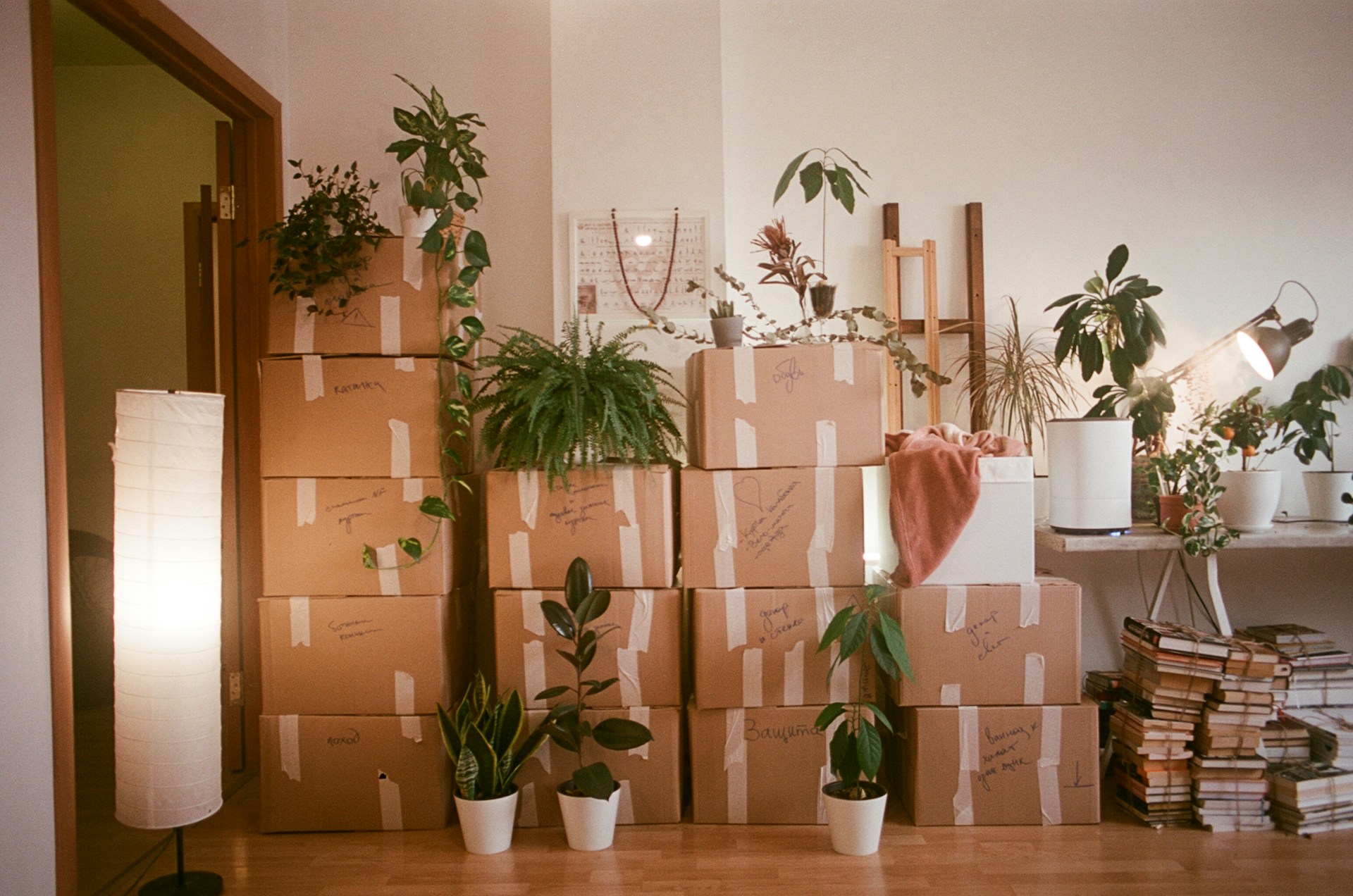
Properly managing utilities prevents gaps in service and ensures correct billing at both properties.
Electricity and Gas Arrangements
Contact your electricity and gas providers at least 2-3 weeks before moving. Provide your moving date and new property address. Arrange for final meter readings at your current property and initial meter readings at your new property. Ask about any security deposits or final billing procedures.
Request that standing charges cease on your moving date to avoid paying for electricity and gas you won't use. Most providers handle this automatically when you provide your final meter reading, though confirming prevents unnecessary charges.
Some properties use prepayment meters requiring credit cards or keys. If your new property uses a different meter type, contact the provider for changeover arrangements and any associated costs or credits owed.
Water and Sewerage
Contact your water company to arrange disconnection and reconnection. Many water companies bill quarterly and automatically transfer accounts to the new owner or occupant, but confirming prevents billing confusion.
Arrange for final water meter readings to ensure accurate final billing. Most water companies provide free meter readings when you move, though some may charge for special readings if meters are inaccessible.
Internet and Telephone
Notify your internet provider 2-3 weeks before moving to arrange disconnection and potentially reconnection if moving to a different property with the same provider. Some providers offer portable services allowing you to take your connection to a new property, though new connections may require 5-10 working days to activate.
If changing providers, research speed options available at your new property, as speeds vary significantly by location. Avoid assuming your previous speed will be available at your new address. Some areas lack superfast broadband, so early research prevents disappointment.
Council Tax and Utilities Registration
Contact your local council to notify them of your change of address. Council tax bills follow the property rather than the person, so the new occupant becomes responsible for bills from your moving date forward. The outgoing occupant typically remains liable only until the moving date.
Register with your new local council immediately after moving to establish council tax liability and receive important local service information including waste collection schedules and recycling guidance.
Packing Strategies for Efficient Moving
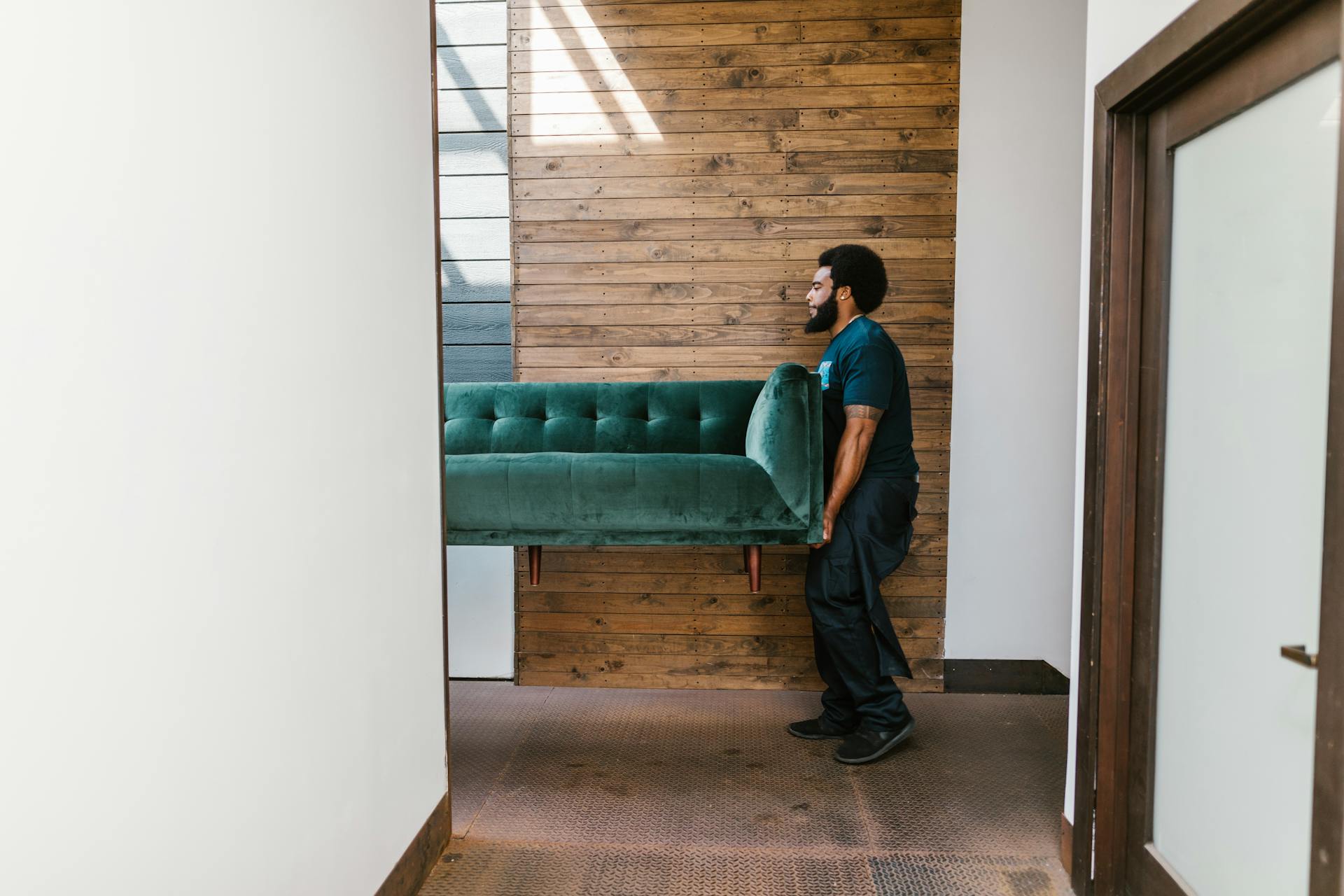
Strategic packing saves time, protects belongings, and makes unpacking dramatically easier.
General Packing Principles
Pack room by room rather than randomly mixing items from different rooms. This approach allows you to unpack one room at a time at your new property, establishing familiar spaces progressively rather than chaotic unpacking throughout the entire house simultaneously.
Use consistent labeling for all boxes. Include the destination room, general contents, and a number (e.g., "Kitchen 1/15" indicating this is box 1 of 15 kitchen boxes). This system allows you to confirm all boxes arrived and track contents efficiently.
Keep a master inventory listing box numbers and their contents. This reference proves invaluable when searching for specific items during unpacking and provides documentation for insurance purposes if anything gets damaged or lost.
Pack heavier items in smaller boxes and lighter items in larger boxes. Heavy boxes become impossible to lift safely and risk damage to contents. A useful guideline: if you can't comfortably carry a box, it's too heavy.
Ready to hire a trusted moving services?
Compare quotes, read verified reviews, and hire with confidence. Our platform connects you with local professionals who are ready to help.
Instant Quotes
Responses within 24 hours
Verified Reviews
Real customer feedback
No Commitment
Choose when you're ready
Packing Materials and Cost Savings
Quality packing materials protect your belongings but represent a significant expense. Sourcing boxes strategically reduces costs substantially. Supermarkets and grocery stores discard boxes regularly—visit at quiet times to request boxes before they're crushed for recycling. Bottle boxes with dividers work perfectly for fragile items like glasses and plates. Produce boxes are sturdy for heavier items like books.
Wine merchants often have small sturdy boxes ideal for books and electronics. Newsagents carry newspaper in bundles perfect for wrapping items. Free local community pages on social media often have people offering free boxes from recent moves. Starting box collection 6-8 weeks before moving allows gradual accumulation without purchasing costs.
Packing materials beyond boxes include bubble wrap, packing paper, tissue, and protective foam. These materials cost money, but alternatives include newspaper (often free from neighbours before recycling collection), old magazines and comics, towels and bedding for padding, and clothing as filling material. Using items you're already moving as protective materials eliminates extra packaging waste.
Protecting Valuables and Important Items
Keep important documents, valuables, and sentimental items with you rather than in removal company vehicles. Irreplaceable items including family photographs, important certificates, jewellery, and electronics benefit from personal transport security. A smaller, personal bag containing these items travels with you to your new property.
Create backup copies of important documents before moving. Digital scans of bank details, insurance policies, and essential paperwork provide backup if originals are lost or damaged. Store digital copies in cloud storage accessible from your new location.
Fragile and valuable items warrant special attention during packing. Use smaller boxes to keep weight manageable and prevent crushing. Photograph valuable items before packing for insurance documentation. For particularly valuable items like artwork or antiques, professional art moving services provide specialised protection, though costs exceed standard moving.
Special Items Requiring Attention
Electronics including computers, televisions, and stereo equipment benefit from original packaging if available. Before packing any electronics, photograph or note cable connections for easy reassembly. Wrap devices in bubble wrap before boxing. Consider removing drawers from computers or disconnecting internal components if providing extra protection for valuable systems.
Mirrors and large glass items require exceptional protection. Wrap completely in bubble wrap or moving blankets. Stand vertically in boxes rather than laying flat—vertical positioning distributes pressure better and reduces breakage. Never stack heavy items on top of mirrors or glass.
Plants present unique challenges during moving. Most removal companies exclude plants from their coverage as they can't guarantee plant survival. Transport plants yourself, placing them in stable positions where they won't tip during transit. Water lightly before moving to reduce spillage. Large plants may require professional plant moving services if extremely valuable or rare.
Room-by-Room Packing Guidance
Kitchen Packing
Protect dishes by wrapping each plate individually in bubble wrap or packing paper. Stack wrapped plates vertically rather than flat—vertical stacking distributes weight better and reduces breakage risk. Fill glasses with packing paper and wrap tightly.
Pack kitchen items by frequency of use—daily items like mugs and everyday plates in separate boxes for easy unpacking versus special occasion items like best china packed separately. Include packing materials like plastic bags, cling film, and kitchen roll in one accessible box for immediate post-move kitchen setup.
Place heavier items like pots, pans, and small appliances in separate boxes from dishes, as mixing weight unevenly stresses box bottoms and contents. Wrap pan handles with bubble wrap to prevent damage to other items and injuries during handling.
Bedroom Packing
Leave clothing in drawers if moving with a wardrobe rather than unpacking and repacking, simply wrapping the drawer in plastic wrap to keep contents contained. For items requiring removal from drawers, use vacuum-seal bags to compress soft furnishings and reduce volume significantly.
Remove drawers from chests and dressers if possible, protecting edges with bubble wrap and removing weight from the furniture structure during transport. This reduces damage risk and allows drawers to be reinstalled at your new property without contents requiring removal.
Pack pillows, duvets, and soft furnishings in vacuum-seal bags reducing volume by 50-75% and protecting against dust and moisture damage during transport. Bed linen and bedding can be packed together if kept clean, reducing box count.
Living Room Packing
Protect electronics like televisions and stereo equipment in their original packaging if available. If original boxes are unavailable, carefully wrap devices in bubble wrap and pack in sturdy boxes with ample cushioning material. Include power cables and remote controls in the same box, labeled clearly for easy reconnection.
Remove book spines from shelves and stack books horizontally in boxes rather than vertically to reduce weight per box. Heavy boxes of books become unmanageable; multiple smaller boxes distribute weight better and reduce injury risk.
Disassemble furniture where possible, wrapping loose parts in plastic bags and taping them to the corresponding furniture piece. Keep assembly instructions with furniture or photograph the assembled state before disassembly to simplify reassembly.
Bathroom Packing
Keep medications in their original labeled containers, packed together in one easily accessible box. Never mix medications with other bathroom items to prevent accidental errors. Include prescriptions and medical information for post-move doctor registration if needed.
Seal any open bottles, jars, or containers to prevent leakage during transport. Place sealed items in plastic bags for additional protection against potential leaks damaging other belongings. Keep toiletries separate from other items to minimize any damage if leakage occurs.
Leave out daily toiletries (toothbrush, toothpaste, deodorant, etc.) until moving day, packing these as final items in your essentials box for immediate availability at your new property.
Moving Day Management
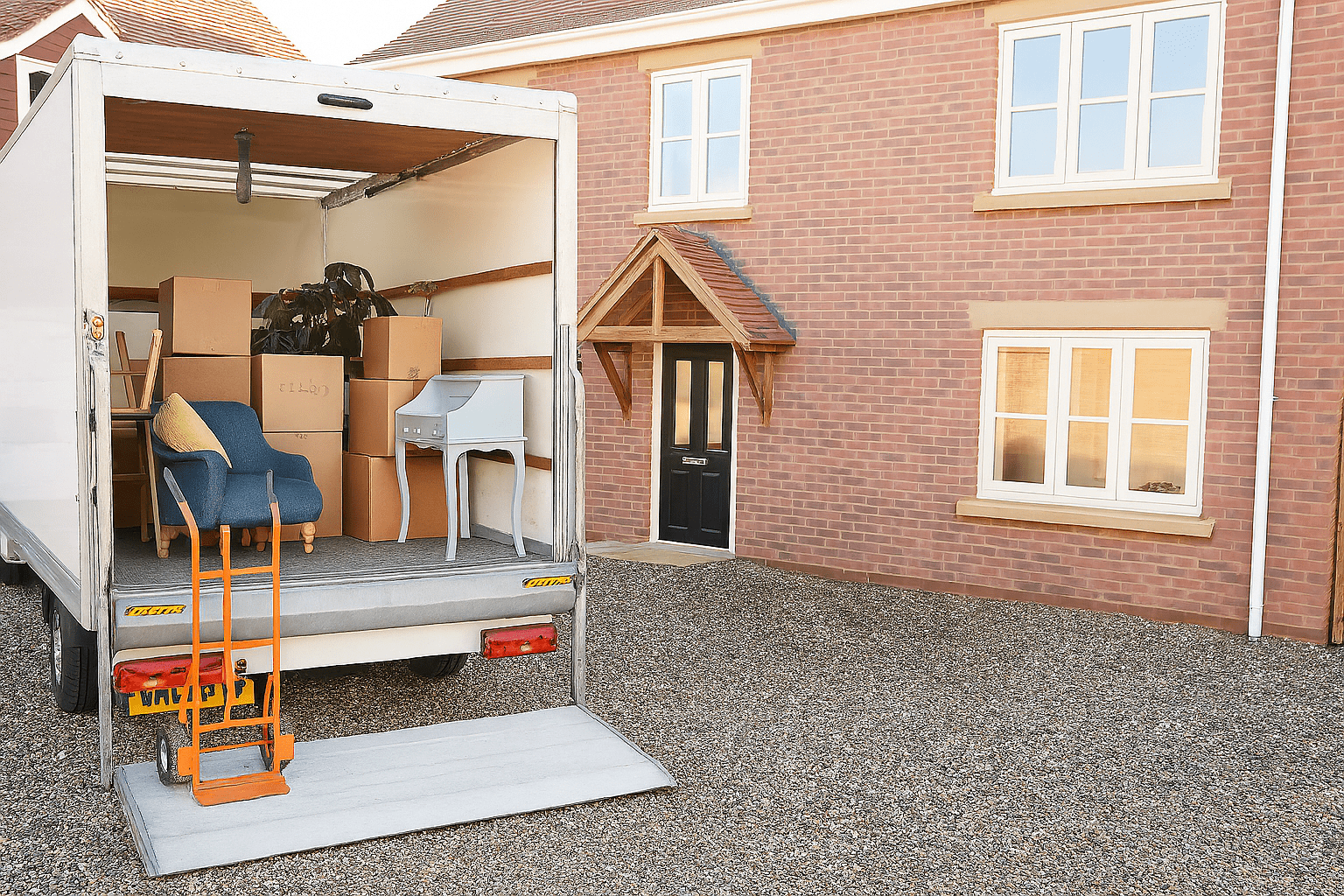
Proper moving day organization ensures efficiency and minimizes stress.
Pre-Moving Day Preparations
Confirm your removal company's arrival time the day before moving. Have contact details readily available in case they need directions or encounter traffic. Arrange parking for the removal truck if necessary—notify your council or manage street parking permits if required in your area.
Do final walk-throughs of your property checking all cupboards, drawers, and storage spaces are empty. Ensure all utilities are switched off at the supply point (gas at the meter, electricity at the mains). Leave lights on so removal staff can navigate safely, switching them off as you depart.
Have your essentials box, important documents, valuables, and pet/children accommodation arrangements confirmed and ready. These items typically travel with you rather than removal company vehicles, ensuring immediate availability at your new property.
During the Move
Remain available throughout the moving process to answer questions, direct staff regarding item placement, and confirm items are being loaded safely. Walking through your current property with removal staff ensures everyone understands the layout and specific handling requirements for fragile or valuable items.
Direct removal staff regarding furniture placement in your new property if you have specific preferences. Most removal companies place furniture in logical rooms (bedroom furniture in bedrooms, kitchen items in kitchens) unless directed otherwise.
Maintain communication with removal staff throughout the day. Confirm that all items have been loaded before departing your current property. Do a final check of empty rooms, cupboards, and outdoor storage areas for forgotten items.
After Moving Day
Arrange meter readings at your previous property and confirm with utility providers that you've received final bills. Request from your landlord's agent (if renting) confirmation of your deposit return application status and timeline.
Begin unpacking systematically, starting with bedrooms to establish comfortable sleeping spaces first, followed by bathrooms and kitchens for basic functionality, then remaining rooms. This progression creates functional living conditions quickly while unpacking continues.
Register with local services including your GP, dentist, and any necessary specialist providers. Update prescriptions with your new address and arrange any medication transfers if needed.
Finding Professional Moving Help Through FixaTrader
While these moving home tips help you manage the process yourself, professional assistance can simplify your move significantly. Whether you need a full-service removal company handling everything from packing to unpacking, or specific help like waste clearance or cleaning services, finding the right professionals makes a substantial difference to your moving experience.
FixaTrader connects homeowners with vetted, trusted moving and removal specialists throughout the UK. Our platform simplifies finding professional movers by allowing you to describe your specific moving requirements, receive free quotes from multiple local removal companies, compare pricing and customer reviews, and book with confidence knowing you're working with verified professionals.
Every removal company on the FixaTrader platform is verified and insured, providing peace of mind that your belongings receive proper protection and professional handling. You can review detailed customer feedback from previous moves, understand exactly what services are included in each quote, compare prices across multiple providers to ensure competitive rates, and communicate directly with movers to discuss your specific needs and concerns.
Beyond standard removal services, FixaTrader can help you find specialists for specific moving-related services including professional packing services that handle fragile items and valuable possessions with specialized protection, waste clearance and disposal services for items you're not moving, cleaning services for your current property after moving out or preparing your new property before moving in, and storage solutions if you need temporary accommodation for belongings between properties.
Many homeowners find that professional assistance with specific aspects of the move—even if not using a full removal service—reduces stress and improves outcomes. Professional packers handle fragile items expertly, preventing damage that DIY packing might cause. Professional cleaners ensure your current property is in excellent condition for deposit returns or handovers, while preparing your new property for comfortable habitation immediately upon arrival.
Using FixaTrader's platform provides documentation of your moving costs and services, making it easier to claim moving expenses against property purchase or rental deductions where applicable. Multiple quotes allow you to budget accurately and identify the best value rather than accepting the first quote you receive.
Whether you're managing the entire move yourself using these tips or hiring professionals to handle some or all aspects, FixaTrader helps connect you with the right support. Start by describing your moving requirements on our website, receive free quotes from vetted local professionals, and take control of your moving experience with confidence.